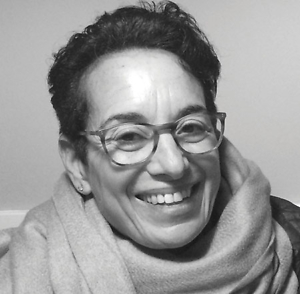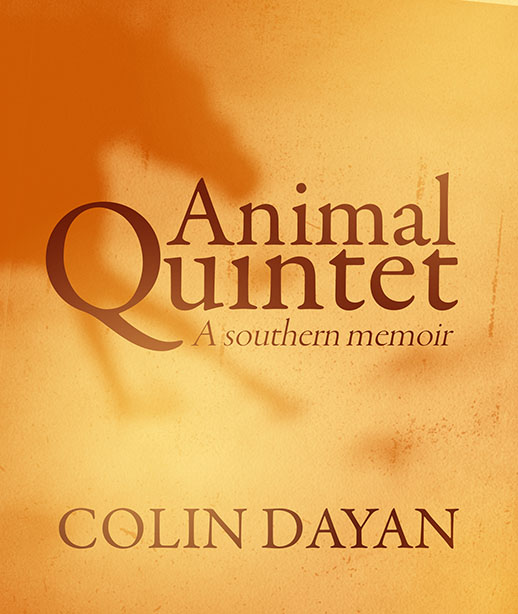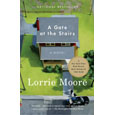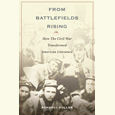Her Postage Stamp of Native Soil
Jesmyn Ward’s debut novel, Where the Line Bleeds, updates Faulkner’s Mississippi
Bois Sauvage, Mississippi, the setting of Jesmyn Ward’s debut novel, Where the Line Bleeds, is a tiny town nestled in the swampy, piney depths of the Gulf Coast, where few leave and solid jobs are fewer still for those who stay. It is a world that Ward, currently writer-in-residence at Ole Miss, knows intimately: she grew up in a town much like Bois Sauvage, the first member of her family to receive a college degree. Her deep empathy for the people of this place, and attentiveness to its landscape, make the book a stirring, evocative portrait of two brave young African-American men who have, and ask for, little beyond the love and support of their maternal grandmother, Ma-mee, who raised them.
Joshua and Christophe DeLisle, twin brothers and recent high-school graduates, have one vision for the near future: find low-wage jobs, and make enough to support themselves and Ma-mee, who is blind and diabetic. Even if moving away seemed a viable option for these two decent young men, they would not pursue it: they honor family ties above all else, and their respect for and devotion to their grandmother—and each other—is their mental, even spiritual, ballast in a world that offers no advantages.
But when Joshua lands a coveted, if physically grueling, job as a dockworker, a chasm opens between the twins. Christophe, desperate to help the family stay above water, begins selling marijuana—a betrayal of Ma-mee, and a path he and Joshua promised one another they would never take. The cash begins trickling in, but thick shame—for disappointing his brother, for deceiving Ma-mee—shrouds Christophe. Meanwhile, the twins’ estranged parents appear back on the scene: self-absorbed Cille, the mother who long ago left to live in Atlanta, and their junkie father, widely known in the community as “Sandman.”
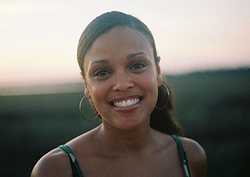 Ward’s tender, painstaking portrayal of Joshua and Christophe, their family and friends and cohorts, and of the culture and landscape that has sculpted them, is deeply lyrical without sacrificing an unflinching realism. And her depiction of Bois Sauvage—which stands to become her Yoknapatawpha—is redolent with the sounds, smells, and relentless heat of a Gulf Coast summer: a crumbling basketball court, encroached upon by weeds and vines, with splintery benches and floodlights that flicker on and off, is both site of the twins’ escalating conflict and a powerful metaphor for their threatened, fragile lives.
Ward’s tender, painstaking portrayal of Joshua and Christophe, their family and friends and cohorts, and of the culture and landscape that has sculpted them, is deeply lyrical without sacrificing an unflinching realism. And her depiction of Bois Sauvage—which stands to become her Yoknapatawpha—is redolent with the sounds, smells, and relentless heat of a Gulf Coast summer: a crumbling basketball court, encroached upon by weeds and vines, with splintery benches and floodlights that flicker on and off, is both site of the twins’ escalating conflict and a powerful metaphor for their threatened, fragile lives.
Ward recently answered questions from Chapter 16 via email.
Chapter 16: Where the Line Bleeds is such a lovingly drawn portrait of a segment of society that is often reduced to cliché in media representations. Were you very conscious of the book as potentially broadening horizons—or the possibility of reinforcing stereotypes—as you were working on it?
Ward: I definitely hoped that the book would broaden people’s horizons. So often in this culture, young black men, especially in the South, are demonized. They’re the menacing other, the element you avoid, and I hoped that exploring characters like these brothers, making them fully human and fallible and real, would counteract some of that. But I was nervous at the same time because I knew what Christophe was doing was something that fed that stereotype. But part of my responsibility as a writer is to be honest, and I was being honest. It does happen. Poor black boys do sell drugs. I had to account for that, but I’m hoping that the strength of the character makes the reader just uncomfortable enough to question those stereotypes.
Chapter 16: Can you talk a little bit about how growing up on the Gulf Coast of Mississippi influenced the writing of this book?
Ward: Well, my entire extended family is from the Mississippi Gulf Coast. Three of my great-grandparents were alive when I was still in my teens, and I was old enough to appreciate the stories they told. As far as they could remember, this is where we’d always been. This place is so frustrating for me: the racism, the political corruption, the development spawned by greed without regard for community. But at the same time, my love for this place, for the people and my family and the beauty of swimming in a warm brown river, of fishing under bridges out on the bayou where the air smells like oysters and sour mud, well that suffocates me. So I’m trying to be as honest as I can and capture all of that when I write. It’s hard.
Chapter 16: It’s often said that to write best about a place, you have to get some distance from it. Has that been true for you?
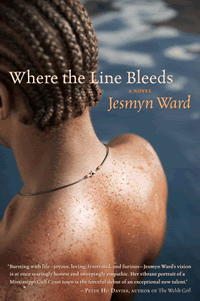 Ward: That’s a difficult question to answer. I wrote approximately half the book in Michigan, and the other half here in Mississippi, at home in DeLisle. I remember being relieved to be at home, writing, that it was a short leap for my imagination to draw from the world around me to inform the world I was creating on the page. I know writers who say it is easier for them to write about home when they are away from it; I’ve even heard writers say it’s impossible for them to write about home when they are there. I’m able to write about home if I’m there or if I’m away. When I write books away from home, the book is tinged with homesickness, I think. When I’m at home writing about home, the book is tinged with equal parts love and frustration.
Ward: That’s a difficult question to answer. I wrote approximately half the book in Michigan, and the other half here in Mississippi, at home in DeLisle. I remember being relieved to be at home, writing, that it was a short leap for my imagination to draw from the world around me to inform the world I was creating on the page. I know writers who say it is easier for them to write about home when they are away from it; I’ve even heard writers say it’s impossible for them to write about home when they are there. I’m able to write about home if I’m there or if I’m away. When I write books away from home, the book is tinged with homesickness, I think. When I’m at home writing about home, the book is tinged with equal parts love and frustration.
Chapter 16: Males—not just the twins, but also their friends and cohorts—are very much the heart of this narrative, even though Ma-mee, the grandmother, is a significant presence too. Was it difficult to channel such a masculine culture? What helped you along in that process?
Ward: I grew up with it, really. The part of DeLisle that I grew up in was all boys when I was younger. Me, a girl cousin, and my two sisters were really the only girls in that part of the community when we were growing up, so I was always comfortable in that environment. My brother, who is three years younger than I am, influenced my drive to channel that culture and understand it, too. He was killed by a drunk driver in October 2010, but when we were growing up we were very close; he told me things he wouldn’t tell other girls, I think. I drew from his experience, from the experiences I saw reflected in the lives of all those boys around me, to write the twins’ story. I did have some trouble with making them sexually voracious, as teenage boys generally are, but editorial feedback from mentors and the publisher of the book helped.
Chapter 16: I found it interesting that you gave the twins a surname that’s also the name of your hometown. How did you arrive at that decision?
Ward: I wanted to use my hometown’s name in the book. Since many of the black Creole families on the Coast bear names of French settlers, I thought it made sense that they might have the surname of DeLisle, since the person who founded the town was a white Frenchman.
Chapter 16: How do you feel about being labeled a Mississippi writer? A Southern writer? An African-American writer? Do you feel that your work will largely be associated with a certain place, a particular region?
Ward: Place is very important to my writing. So is my ethnicity, and so is my gender. I don’t have a problem with any of those labels because they all tell the reader something about my identity and my experience. Plus, I’m in great company. Some of the most amazing writers of American literature have hailed from Mississippi. When I do find labels problematic is when they limit the audience that the publisher will attempt to access or they limit readership. That’s when I get angry that I’m writing about human beings with universal experiences, and yet their identity and my identity mean that my work is marginalized by readers or publishers.
Chapter 16: Are there books, or authors, you return to again and again for inspiration and/or guidance?
Ward: As I Lay Dying, by William Faulkner, and Absalom Absalom. Faulkner’s brilliant. Jean Toomer’s Cane. I hope that poetry informs my prose style: I love Louise Erdrich’s poetry and Adrienne Rich’s poetry.
Chapter 16: Which contemporary writers would you press upon readers—or young aspiring writers? What reading material is on your nightstand these days?
Ward: I’d definitely tell them to read Junot Diaz and Louise Erdrich and ZZ Packer. I’m currently trying to work my way through all the books I think I should have read earlier in my career but haven’t, so I’m reading Proust’s Swann’s Way. For fun, I’m reading Doyle’s The Adventures and Memoirs of Sherlock Holmes right now.
Chapter 16: The boys live on the Mississippi coast, about an hour and a half from New Orleans. That’s an area that, in the past 20 years or so, has become very economically dependent on casino boats. So I was a bit surprised that gambling didn’t figure into the world you created in this book.
Ward: Well, I dislike casino boats. I hate that the economy is so dependent on them, and I hate that they’ve made so many people develop gambling addictions. I mean, sometimes I go to them and enjoy them, but I think it’s a shame that they’ve fundamentally changed the sense of community that was more evident across the Coast before they arrived.
Chapter 16: Are Christophe and Joshua much like boys you knew when you were their age? Did you “know” them?
Ward: I didn’t know them, but I knew boys like them. Joshua is like some of my closest friends that I grew up with, as is Christophe. I know several young men who are like Joshua: patient, kind, slow to anger, and I know several young men who are like Christophe: impatient, brusque behavior that masks something deeper, and quick to anger and act out. But they’re not a straight translation of people I know onto a character. They’re still fictional.
Chapter 16: Where the Line Bleeds is so rich in its depiction of the natural world—the landscape is really a character itself. Was this something that you knew from the start would be fundamental to this narrative?
Ward: I think that this emphasis on the natural world is a hallmark of my work. The beauty and complexity of this landscape has always fascinated me, has always felt like a part of me. This, I think, is reflected in my work.
Chapter 16: I understand that you’ve got a second novel finished. Want to tell us anything about it?
Ward: The forthcoming novel is finished. It’s called Salvage the Bones, and it takes place in the same small town, Bois Sauvage. A minor character from the first novel is one of two main characters in the second novel. The novel chronicles the ten days leading up to Hurricane Katrina, Hurricane Katrina, and then the immediate aftermath. It centers around a family who lives in a secluded place in the town, and the family consists of one girl, her three brothers, and her father, who’s abusive. She’s 15, she’s lost, and her brother (the minor character from the first novel) is sort of obsessed with his dog, a pit bull that he fights. There’s a lot going on, but I love it, and I’m very excited for people to read it. It’s coming out with Bloomsbury in September 2011. This is what I’m currently reading from.
Chapter 16: Where the Line Bleeds takes place before Hurricane Katrina. How has this world changed since the storm?
Ward: If it were set after Katrina, it would be even bleaker. I don’t know if Joshua would have been able to keep the job he found, or if he would have found it in the first place in this economy. Christophe’s hustling would have been even more desperate, and it would have been harder for Dunny to get product and keep it. The combination of the economy, the hurricane, and the oil spill has made life much, much harder for people here. I hope that my fourth book, a novel, will honestly address some of these things. (My third book will be a creative nonfiction book/memoir.)
